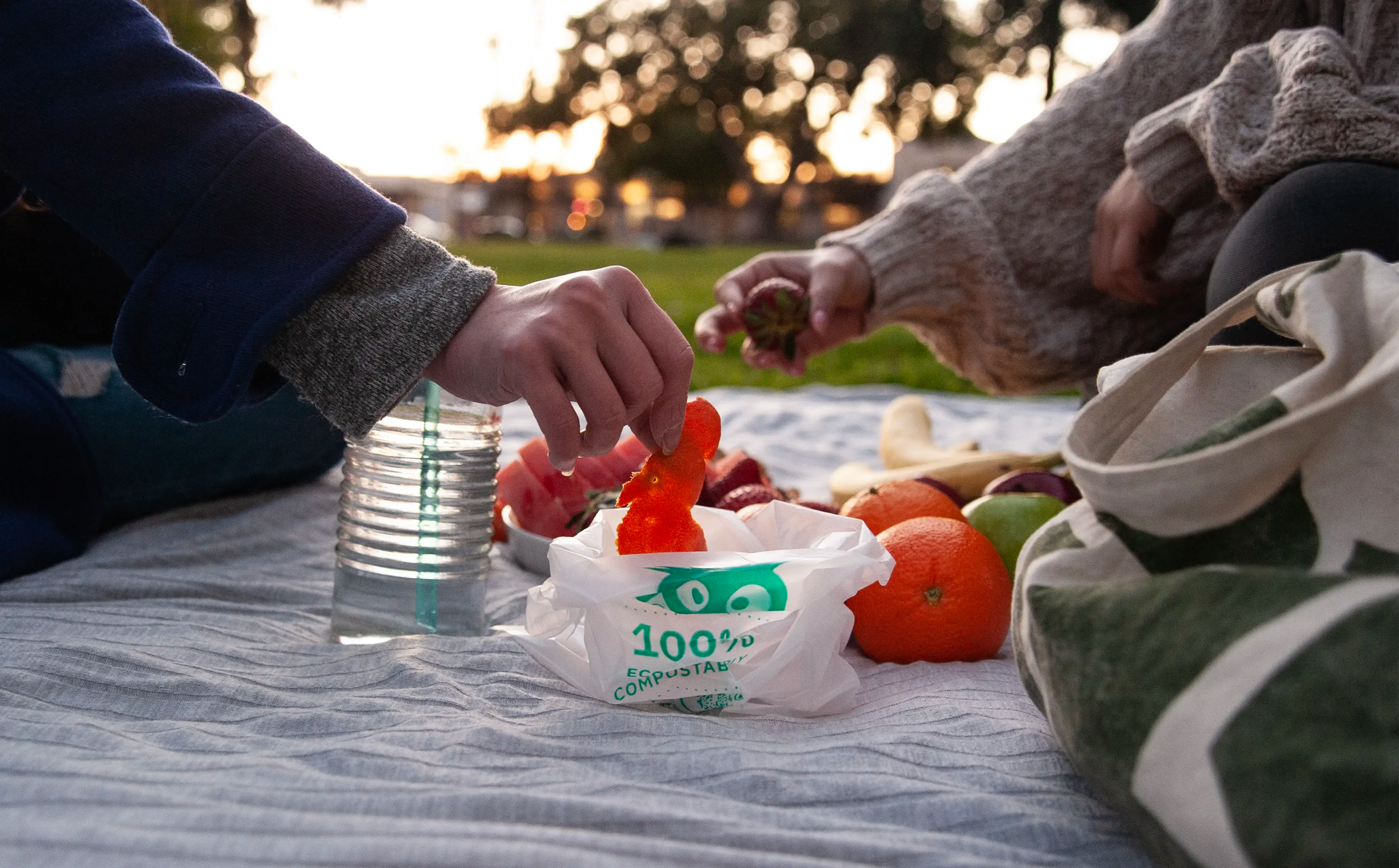Compostable bags are everywhere these days—from grocery stores to zero-waste swaps—but how well do they actually decompose? Are they just another “eco” label, or do they truly return to the earth as promised?
At Owlpack, we believe in putting sustainability claims to the test. So, we took our certified compostable Yucksack Bags and put them through real-world conditions to see how they perform. Here’s what we found.
The Setup: Home Compost vs. Industrial Compost
To understand how well Yucksack Bags break down, we tested them in two common composting environments:
-
🏡 Home compost: A backyard bin with a mix of food scraps, leaves, and moisture, turned weekly.
-
🏭 Industrial compost: A controlled, high-heat facility that processes compostable materials on a large scale.
Both setups simulate the conditions many of our customers will use.
—
Week-by-Week Breakdown
Here’s how Yucksack Bags performed over a 10-week period:
🕒 Week 1–2:
-
Bag was intact but starting to soften
-
No visible rips, but it felt more flexible
-
No strong odors or leakage (even with wet food scraps)
🕒 Week 3–4:
-
In home compost: Bag began to break into smaller pieces
-
In industrial compost: Decomposition accelerated noticeably
-
Material started losing its structure
🕒 Week 5–7:
-
In home compost: Most of the bag had broken down into soft fibrous pulp
-
In industrial compost: Only small fragments remained, almost fully gone
🕒 Week 8–10:
-
Home compost: Bag fully decomposed into dark, crumbly material
-
Industrial compost: Completely disappeared—no trace left
✅ Both environments showed complete breakdown with no microplastic residue.
—
What Makes Yucksack Work?
Not all compostable bags are created equal. Yucksack Bags are:
-
BPI and TÜV certified for home and industrial composting
-
Made from renewable, plant-based materials
-
Engineered to break down within 90 days in industrial settings and 180 days in home systems
They’re tough when you need them, and invisible when you don’t.
—
Tips to Make Sure Your Bags Actually Compost
-
Don’t toss them in the regular trash—landfills lack the oxygen needed for decomposition
-
Use them only for compost-safe items (no plastic, meat, or grease)
-
Store in a cool, dry place until use
-
Empty your compost bin every 2–3 days to avoid early breakdown or leakage
—
Final Verdict: Yes, They Really Work
Our test confirms it—Yucksack Bags do exactly what they promise. They’re strong enough for daily kitchen use and break down completely in composting environments. So when you choose Yucksack, you’re not just tossing out waste—you’re feeding the soil.
Ready to try it yourself? Make the swap, and start composting with confidence.



Partager:
7 Common Mistakes With Compostable Bags (and How to Avoid Them)
15 Easy Plastic‑Free Swaps for Everyday Living